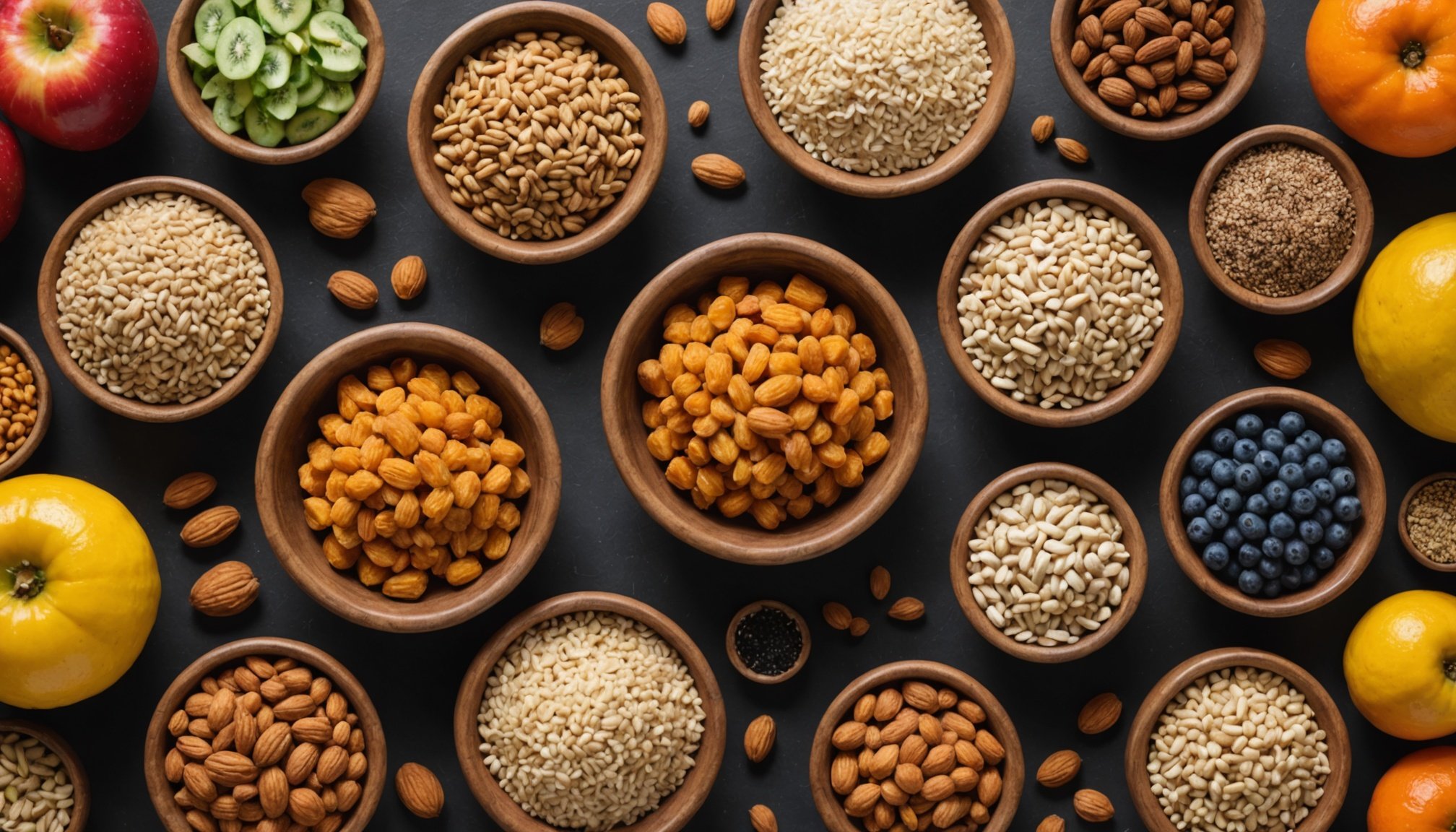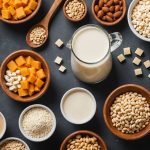Unlocking the Power of Fiber: Does a High-Fiber Diet Enhance Cancer Immunotherapy Outcomes?
The Importance of Fiber in Our Diet
When we think about diet and health, one of the often-overlooked but crucial components is fiber. Fiber, particularly dietary fiber, plays a significant role in our overall health, from maintaining a healthy gut to supporting weight management and even influencing cancer outcomes. In this article, we will delve into the specifics of how a high-fiber diet can enhance cancer immunotherapy outcomes, exploring the scientific evidence and practical implications.
How Fiber Impacts Gut Health
Gut health is a cornerstone of our overall well-being, and fiber is a key player in this arena. High-fiber diets have been shown to significantly impact the gut microbiota, which is the collection of microorganisms living in our gastrointestinal tract.
Also to read : Discover the benefits of dental implants today
Enriching Beneficial Bacteria
High-fiber diets enrich the gut with beneficial bacteria such as Bifidobacterium and Lactobacillus. These bacteria are essential for maintaining intestinal equilibrium and producing bioactive metabolites that regulate inflammation and gut barrier integrity. For instance, studies have revealed that consuming whole grain barley, brown rice, or other high-fiber foods enhances microbial diversity, which is often reduced in individuals consuming low-fiber diets[2].
Modulating Gut Barrier Function
Fiber consumption also strengthens the gut barrier function by enhancing the expression of tight junction proteins such as occludin and zonula occludens-1 (ZO-1). This effect is mediated through the activation of the AMP-activated protein kinase (AMPK) signaling pathway, which also modulates lipid metabolism and reduces inflammation[2].
Topic to read : Boosting Joint Health in Older Adults: The Impact of Regular Water Aerobics Participation
The Role of Fiber in Cancer Immunotherapy
Cancer immunotherapy, which harnesses the body’s immune system to fight cancer, can be significantly influenced by dietary factors, including fiber intake.
Enhancing Immune Cell Function
A high-fiber diet can enhance the function of immune cells, which are critical for recognizing and attacking cancer cells. For example, certain dietary fibers can increase the production of short-chain fatty acids (SCFAs), which are known to modulate the immune system by promoting the differentiation of regulatory T cells and enhancing the function of dendritic cells[2].
Reducing Tumor Growth
Fiber can also play an anti-tumor role by reducing the growth of cancer cells. Flavonols like quercetin, found in high-fiber foods such as fruits and vegetables, can reduce the abundance of pathogenic bacteria and increase the abundance of beneficial bacteria, thus maintaining gut homeostasis. Quercetin also exerts its effects through the modulation of signaling pathways such as NF-κB and MAPK, leading to decreased pro-inflammatory cytokine production and inducing apoptosis in pathogenic bacteria[2].
Case Studies and Clinical Evidence
Several case studies and clinical trials have provided insights into how high-fiber diets can impact cancer patients undergoing immunotherapy.
Fasting and Diet Interventions in CLL
A study on patients with Chronic Lymphocytic Leukemia (CLL) showed that a flexitarian diet, rich in whole foods and plant-based components, could stabilize and even reduce lymphocyte counts. This diet, which included daily vitamin B12 supplements and minimal processed foods, animal protein, and dairy products, demonstrated a favorable prognosis and slow-growth trend of lymphocytosis in CLL patients[1].
Gene Expression and Fasting
Another study highlighted the impact of prolonged fasting on gene expression in CLL patients. The results showed distinct gene expression patterns in patients who underwent fasting, suggesting that fasting and a fasting-mimicking diet could promote hematopoietic-stem-cell-based regeneration and reverse immunosuppression, which are crucial for cancer treatment outcomes[1].
Practical Tips for Incorporating High-Fiber Foods
If you’re considering how to incorporate more fiber into your diet, here are some practical tips:
- Increase Fruits and Vegetables: Focus on whole, unprocessed foods like fruits, vegetables, and whole grains. Aim for a variety of colors to ensure a broad range of nutrients.
- Choose Whole Grains: Replace refined grains with whole grains like brown rice, quinoa, and whole wheat bread.
- Include Legumes: Legumes such as beans, lentils, and peas are high in fiber and protein.
- Nuts and Seeds: Almonds, chia seeds, and flaxseeds are all high in fiber and can be easily added to your diet.
- Limit Processed Foods: Processed foods are often low in fiber and high in unhealthy fats and sugars.
Table: High-Fiber Foods and Their Benefits
| Food Type | Fiber Content (per serving) | Health Benefits |
|---|---|---|
| Brown Rice | 3.5 grams (1 cup cooked) | Enriches beneficial bacteria, reduces Firmicutes abundance, anti-inflammatory effects[2] |
| Quinoa | 5 grams (1 cup cooked) | High in protein, rich in flavonoids, supports weight management |
| Broccoli | 5 grams (1 cup cooked) | Rich in vitamins and minerals, supports immune function |
| Almonds | 3.5 grams (1 ounce) | Supports heart health, reduces cholesterol levels |
| Chia Seeds | 10 grams (1 ounce) | High in omega-3 fatty acids, supports digestive health |
| Lentils | 15 grams (1 cup cooked) | High in protein, rich in minerals, supports blood sugar control |
| Apples | 4 grams (1 medium) | Supports gut health, rich in antioxidants |
| Carrots | 3 grams (1 cup raw) | Supports eye health, rich in vitamins and minerals |
Quotes from Experts
- “High-fiber diets have been shown to significantly impact the gut microbiota, enhancing microbial diversity and promoting the growth of beneficial bacteria,” says Dr. Valter Longo, a leading researcher in the field of aging and cancer[1].
- “The consumption of high-fiber foods can reduce the risk of colorectal cancer by modulating the gut microbiome and reducing inflammation,” notes Dr. David Heber, a renowned expert in nutrition and cancer prevention[5].
In conclusion, a high-fiber diet plays a crucial role in enhancing cancer immunotherapy outcomes. By enriching beneficial gut bacteria, modulating immune cell function, and reducing tumor growth, fiber is an essential component of a health-promoting diet. Incorporating high-fiber foods into your diet is not only beneficial for overall health but also specifically for cancer patients undergoing immunotherapy.
Final Thoughts and Recommendations
As you consider your dietary choices, remember that fiber is more than just a nutrient; it’s a key to unlocking better health. Here are some final recommendations:
- Consult a Healthcare Provider: Before making significant changes to your diet, especially if you are undergoing cancer treatment, consult with your healthcare provider.
- Gradual Changes: Introduce high-fiber foods gradually to allow your gut microbiome to adjust.
- Combine with Exercise: A high-fiber diet combined with regular exercise can further enhance its health benefits.
- Stay Hydrated: Adequate hydration is essential when increasing fiber intake to avoid digestive discomfort.
By embracing a high-fiber diet and understanding its role in cancer immunotherapy, you can take a proactive step towards better health and potentially enhance the efficacy of cancer treatments.











